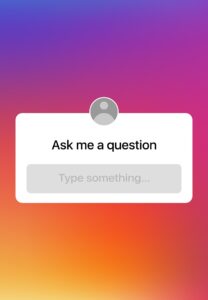
June 21
|
By Juan Merodio
Automation has become an essential tool in digital marketing, and bots for WhatsApp are no exception. Bots allow companies to offer quick and effective responses, improving the customer experience and optimizing internal processes. A bot for WhatsApp can handle queries, schedule appointments, send updates, and perform many other tasks automatically.

Benefits of Using Bots on WhatsApp
Implementing a bot on WhatsApp brings with it numerous benefits. First, it improves operational efficiency by automating repetitive tasks. This not only saves time but also reduces human errors. Additionally, bots can handle multiple conversations simultaneously, increasing customer service capacity without the need to hire more staff.
Another significant benefit is 24/7 availability. Bots can respond to customer queries at any time, which improves customer satisfaction and can lead to an increase in sales. They also enable deeper personalization in interactions, using customer data to offer personalized responses and recommendations.
Creating a bot for WhatsApp may seem like a complex task, but with the right steps, it is a manageable process. Here is a basic guide:
- Get access to the WhatsApp API: The API is required to connect your bot to WhatsApp. You can get access through official providers or authorized partners.
- Configure the server: You will need a server to host your bot. It can be in the cloud or a local server.
- Develop the bot: Use programming languages such as Python or JavaScript to write the code for your bot. There are also no-code platforms that make this task easier.
- Integrate the API: Connect your bot to the WhatsApp API by following the documentation provided by WhatsApp.
- Test and adjust: Before launching, test your bot extensively to ensure that it works correctly and performs the desired tasks.
- Launch and monitoring: Once tested, launch your bot and monitor its performance to make adjustments as necessary.
Marketing Strategies with Bots on WhatsApp
My personal experience in creating bots and marketing strategies on WhatsApp has shown me its effectiveness in marketing campaigns. Using bots on WhatsApp allows direct and personalized communication with customers. Here are some strategies:
- Personalized messages: Uses customer data to send personalized and relevant messages, increasing the likelihood of conversion.
- Promotion automation: Configure your bot to send offers and promotions at key moments, such as customer birthdays or anniversaries.
- Improved customer support: Bots can provide fast and accurate responses, improving customer experience and increasing loyalty.
- Feedback collection: After an interaction, the bot can request feedback, helping to improve products and services.
Success Stories and Practical Examples
There are multiple success stories where WhatsApp bots have transformed interaction with customers. For example, e-commerce companies have used bots to manage order tracking, which has significantly reduced the workload of the customer service team.
Another successful application is in the healthcare sector, where bots remind patients of their appointments and provide important information about their treatments. These implementations not only improve efficiency, but also increase customer satisfaction.
Tools and Resources to Develop Bots in WhatsApp
There are several tools and platforms that facilitate the development of bots for WhatsApp. Some of the most notable ones include:
- Dialogflow: A Google platform that allows you to create conversational interfaces using artificial intelligence.
- Twilio: Provides APIs that facilitate the integration of bots in WhatsApp.
- Chatfuel: A friendly platform to create bots without programming.
- Land flounder: Offers a visual interface to create and manage WhatsApp bots.
WhatsApp API Integration and Configuration
WhatsApp API integration is crucial for the functioning of your bot. This process may seem technical, but it is essential to allow the bot to interact with users. You must follow the setup steps outlined by WhatsApp, which include company verification, webhook setup, and bot code deployment.
Best Practices and Tips to Optimize your Bot
For your WhatsApp bot to be truly effective, it is important to follow some best practices:
- Clarity and conciseness: Make sure the bot’s responses are clear and concise.
- Personalization: Use user data to personalize interactions.
- Constantly updated: Keep your bot up to date with the latest and most relevant information.
- Analysis and continuous improvement: Analyze your bot’s performance regularly and make adjustments to improve its effectiveness.
Future of Bots in WhatsApp and New Trends
The future of bots on WhatsApp is very promising. With the advancement of artificial intelligence, bots will be able to better understand the context and provide more accurate and natural responses. Additionally, integration with other platforms and services will allow bots to offer an even broader range of functionality.
Conclusion: Maximize the Potential of your WhatsApp Bot
Bots for WhatsApp represent a powerful tool to improve communication with customers and optimize business operations. With proper implementation and the use of effective marketing strategies, bots can transform the way businesses interact with their customers. Take advantage of this technology to take your business to the next level and maximize its potential.
Juan Merodio
Juan Merodio is an expert in Digital Marketing and Promoter of Digital Businesses (AI, Web3 and New Technologies). He has founded the company that bears his own name, Juan Merodio, and from where he and his team coordinate and develop business consulting in Marketing and Digital Transformation for companies in different parts of the world such as Spain, Latin America, Japan, Canada and the United States.
Compartment >>
Source: https://www.juanmerodio.com/bot-whatsapp/


